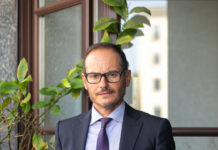In the past, developed countries have based their economic growth model on the spread of consumer goods and services, with intensive use of energy, often at the expense of the environment and with little regard for the future availability of non-renewable energy sources. Today, as the issue of environmental sustainability (and sustainable development) is gaining priority importance, politicians and society as a whole have the task of reconciling economic growth, increasing and spreading prosperity, and environmental protection. Franca Miccolis, lawyer, who for years has been offering qualified advice to medium and large-sized companies operating in the energy sector on the development and design of photovoltaic, agrovoltaic and wind power plants, spoke on this topic.
by Roberta Imbimbo

Mr Miccolis, what is the 2030 Agenda on sustainable energy production?
In 2015, at the Paris Climate Conference, a new agreement was adopted that, for the first time, binds all countries to reduce their greenhouse gas emissions with the ambitious goal of limiting average global warming to well below 2 degrees Celsius compared to pre-industrial times, aiming for a maximum increase of 1.5 degrees.
One of the most important pathways to achieving the 17 Sustainable Development Goals (SDGs) set by the 2030 Agenda is to achieve a climate-neutral economy by 2050, by decreasing greenhouse gas emissions and investing more in renewable energy sources (from the current 26% to 90% by 2050). Even today, however, most countries are dependent on imported fossil fuels, which, subject to constant price fluctuations, can increase energy poverty and reduce the competitiveness of national companies. To achieve the Agenda’s goals by 2030, countries would have to increase installed capacity by 2.3 TW, or 259 GW per year for the next nine years. However, despite the introduction of new regulations with the aim of simplification, in our country the new photovoltaic and wind power plants authorised are not sufficient to give certainty of achieving the decarbonisation targets.
What is the core activity of the law firm you founded back in 1996 in Milan?
The firm offers qualified advice to medium and large-sized companies operating in the energy sector – a constantly evolving sector that requires specific knowledge of the relevant regulations – on the development and design of photovoltaic, agro-voltaic and wind power plants in the authorisation phase, from the stipulation of contracts for the acquisition of land rights to the design, construction and delivery of turnkey plants – EPC – or for maintenance and management – O&M. It offers assistance in the preparation of contracts for the acquisition of plants; preparation of due diligence in both the development and acquisition phases; and legal advice on agro-photovoltaic matters. Currently, the Firm is also collaborating on an ambitious Project for the development of agro-voltaic plants on football pitches – mostly owned by municipalities – where, in addition to photovoltaic panels, greenhouses for the cultivation of microalgae, red kiwi and containers for hydroponic farming will be placed. This Project is therefore part of the broader political landscape of supporting the achievement of the objectives of environmental sustainability, urban regeneration, energy saving, and increasing the rate of ‘zero kilometre’ food supply. This will benefit sports clubs, which will be able to organise many more activities with young people with obvious positive effects on youth policies.
For more info (https://www.avvocatomiccolis.it)

























































